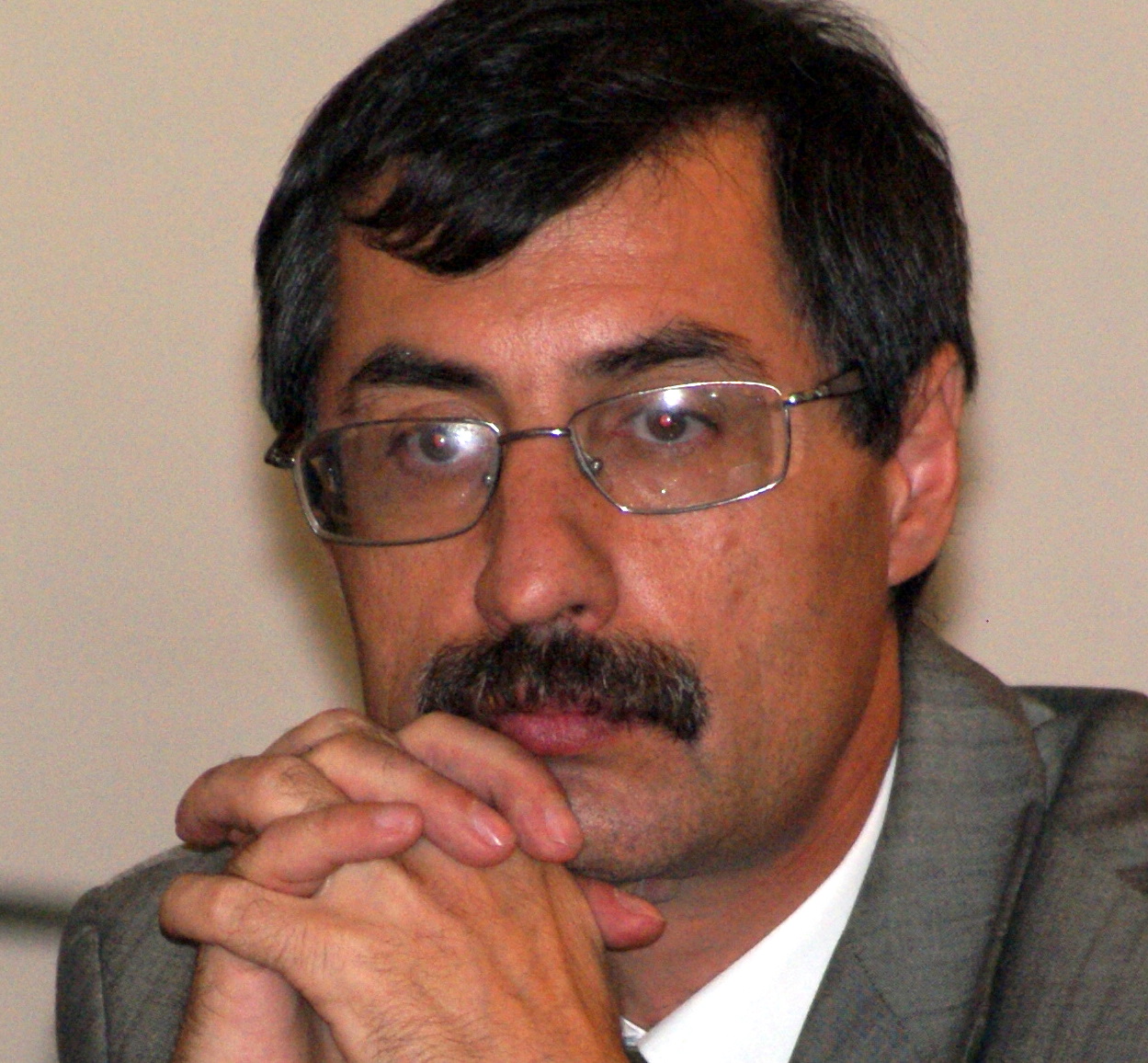
Protesters showing support for Yevgeny Zhovtis in Uralsk in October 2009.
“It is not acceptable that Zhovtis (upper right corner) is denied his legal rights during his imprisonment. It seems to be different rules for him than for his fellow inmates,” says Norwegian Helsinki Committee’s Secretary General Bjørn Engesland.
Quarantine for the flu?
The reasoning for the denial was apparently that Zhovtis is subject to quarantine for the flu. However, neither in Ust-Kamenogorsk nor in the colony (labour camp) is there such a practice.
Also, he was reprimanded for eating his meals outside the settlement colony cafeteria, in breach of prison regulations. However, this practice has been going on for six months already in agreement with the prison management because of Zhovtis’ health.
Zhovtis had also received several reprimands for his refusal to sign a work agreement with labor camp officials and had been watching television at an “inappropriate time.”
Denied parole
Only two weeks ago, Zhovtis had served one third of his imprisonment term and had applied for early release. This was denied and he was allowed to apply for the second time only six months later, in June.
However, at the same time as denial of his holiday was clear on 9 February, they also informed him that he will not be able to apply for early release until one year later.
Sergei Duvanov, head of the Committee to Defend Zhovtis, told journalists that the parole board in the northeastern city of Oskemen said Zhovtis was not participating in “everyday social life” at his colony and has not been rewarded for good behavior or his labor.
Svetlana Vitkovskaya, Zhovtis’s wife and lawyer, said he will make an official request for the board’s decision to be revised.
Denial connected to politics?
Human rights activists in Kazakhstan said a decision to deny early release to Zhovtis was likely connected with a planned referendum on extending the president’s term in office, now changed to the snap elections.
The Kazakh Bureau for Human Rights, which Zhovtis chairs, issued a statement alleging that the decision is directly connected with plans to prolong Kazakh President Nursultan Nazarbaev’s term in office.
Human rights activists consider the verdict against Zhovtis to be unusually harsh and say the sentence is retaliation for his professional activities.
Background
Evgeniy Zhovtis was sentenced to four years’ imprisonment in a semi-open colony in September 2009 after a disputed trial where he was found guilty of vehicular manslaughter.
Zhovtis is the head of the Kazakh Bureau for Human Rights in Almaty and has often spoken out about alleged rights violations committed by the Kazakh government.
Norwegian Helsinki Committee awarded Zhovtis the 2010 Andrei Sakharov Freedom Prize, and we have visited Zhovtis in prison in Ust-Kamenogorsk August 2010.
Zhovtis vs. Kazakhstan
In November 2010, a New York-based advocacy group, the Open Society Justice Initiative, said Zhovtis had filed a complaint with the United Nations Human Rights Committee, alleging that his imprisonment was meant to silence him.
Zhovtis v. Kazakhstan alleges numerous violations  of Zhovtis’s rights under the International Covenant on Civil and Political Rights, including his rights to fair trial, privacy, and freedom from arbitrary detention, as well as his right to be treated with dignity in detention and to be protected as a human rights defender.
of Zhovtis’s rights under the International Covenant on Civil and Political Rights, including his rights to fair trial, privacy, and freedom from arbitrary detention, as well as his right to be treated with dignity in detention and to be protected as a human rights defender.
For further details of the case, a litigation summary and supporting documents are available here.
Related articles:
The Zhovtis case reaches the UN Human Rights Committee
Kazakhstani HR defender receives the 2010 Sakharov Award
Human rights challenges in Kazakhstan
Kazakhstan: referendum rejected, real test for democracy – free and fair elections





